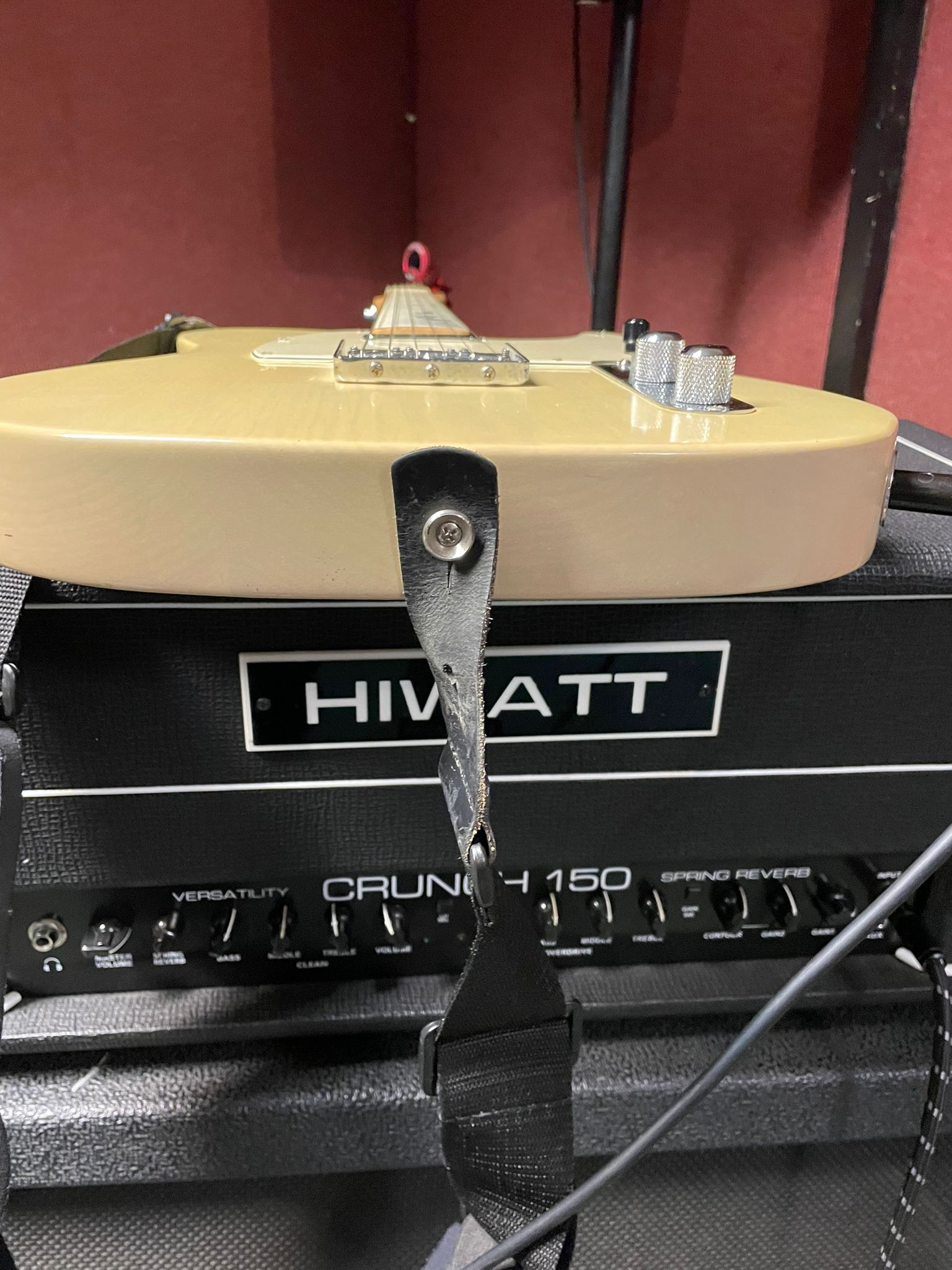
John Squire
John Squire: A Sonic Architect of The Stone Roses
John Squire, born on November 24, 1962, is a legendary guitarist best known for his pivotal role in the influential British rock band, The Stone Roses. Squire’s contribution to the band’s distinctive sound and his innovative guitar techniques have left an indelible mark on the history of rock music. This essay delves into Squire’s musical journey, focusing on specific tracks, guitar techniques, the guitars he used, and his remarkable performances with The Stone Roses.
Early Influences and Formation of The Stone Roses
Squire’s musical journey began in Manchester, England, where he was influenced by a diverse range of artists, from classic rock icons like Jimi Hendrix and The Rolling Stones to punk and post-punk bands such as The Clash and The Sex Pistols. In 1983, Squire, along with Ian Brown, Reni (Alan Wren), and Mani (Gary Mounfield), formed The Stone Roses. This formation marked the beginning of a musical revolution that would shape the “Madchester” scene in the late 1980s.
Guitars Used by John Squire
Squire’s sonic exploration was not only defined by his playing style but also by the guitars he chose including a Gretsch G6122 Chet Atkins Country Gentleman, a Gibson Les Paul Custom Black Beauty and a the Fender Stratocaster. Squire’s use of the Stratocaster, with its bright and crisp tone, played a crucial role in defining The Stone Roses’ sound. His choice of a rosewood fingerboard added warmth to the tone, contributing to the band’s unique blend of psychedelic rock and dance beats.
Squire’s affinity for vintage guitars also extended to the Gibson Les Paul. While not as prevalent in The Stone Roses’ early work, the Les Paul’s thick, sustaining tone became more prominent in later albums, adding depth and richness to the band’s evolving sound.
Specific Tracks and Guitar Techniques
- “Waterfall” (1989): Squire’s intricate and melodic guitar work on “Waterfall” showcases his ability to create lush, harmonically rich landscapes. The jangly arpeggios and ethereal slide guitar passages contribute to the dreamy atmosphere of the song, setting it apart as one of The Stone Roses’ timeless classics.
- “I Wanna Be Adored” (1989): The iconic opening track of their debut album features Squire’s memorable guitar motif, played with a distinct tremolo effect. The repetition of this simple yet powerful riff establishes the hypnotic quality that characterizes much of The Stone Roses’ music.
- “Fools Gold” (1989): Squire’s exploration of funk-infused guitar lines is exemplified in “Fools Gold.” The song’s infectious groove, driven by his intricate picking and wah-wah pedal use, highlights Squire’s versatility as a guitarist and the band’s willingness to experiment with different genres.
- “Love Spreads” (1994): Moving into the band’s second album, “Love Spreads” features Squire’s bluesy and soulful slide guitar playing. The song’s dynamic shifts, coupled with Squire’s emotive lead guitar work, contribute to the overall intensity and maturity of The Stone Roses‘ sound in their later years.
During the early years of The Stone Roses, John Squire utilized a pink Fender Stratocaster and a Gretsch (potentially a Country Gent) guitar, paired with a Vox AC30 amplifier, to achieve the iconic jangly tones for which he is renowned.
John Squire Performances and Stage Presence
Beyond the studio recordings, Squire’s live performances played a crucial role in shaping The Stone Roses’ reputation as an electrifying live act. His stage presence and dynamic interactions with the audience created an immersive concert experience. Notable performances, such as the band’s legendary gigs at Spike Island in 1990 and Heaton Park in 2012, solidified The Stone Roses’ status as one of the most influential live acts in the history of British rock.
In the video capturing The Stone Roses’ live rendition of “Waterfall” on the UK television show The Other Side of Midnight, John Squire is seen performing with his Country Gentleman guitar.
Liam Gallagher John Squire
The choice of “Just Another Rainbow” as the first single implies a deliberate attempt to showcase the collaborative chemistry between Gallagher and Squire. The title itself suggests a blend of the ordinary and the extraordinary, mirroring the fusion of two musical powerhouses. The track’s structure, with Gallagher’s vocals leading into Squire’s guitar-driven crescendo, hints at a carefully crafted balance between vocal storytelling and instrumental exploration.
Check out the official video here with John Squire playing a red Stratocaster
In a musical landscape where collaborations often yield unexpected and exciting results, the pairing of Liam Gallagher and John Squire has the potential to create a sonic experience that resonates with fans of both artists. As fans eagerly await further releases from this collaborative project, “Just Another Rainbow” serves as a promising introduction to what may become a memorable chapter in the musical legacy of these Manchester legends.
John Squire’s role in The Stone Roses goes beyond being just a guitarist; he is a sonic architect who, through his innovative guitar techniques and choice of instruments, crafted a sound that left an indelible mark on the music landscape. From the jangly arpeggios of “Waterfall” to the funk-infused grooves of “Fools Gold” and the soulful slide guitar of “Love Spreads,” Squire’s musical legacy continues to resonate with fans and aspiring guitarists alike. His ability to seamlessly blend various genres and push the boundaries of conventional rock guitar playing remains a testament to his enduring influence on the world of music.







